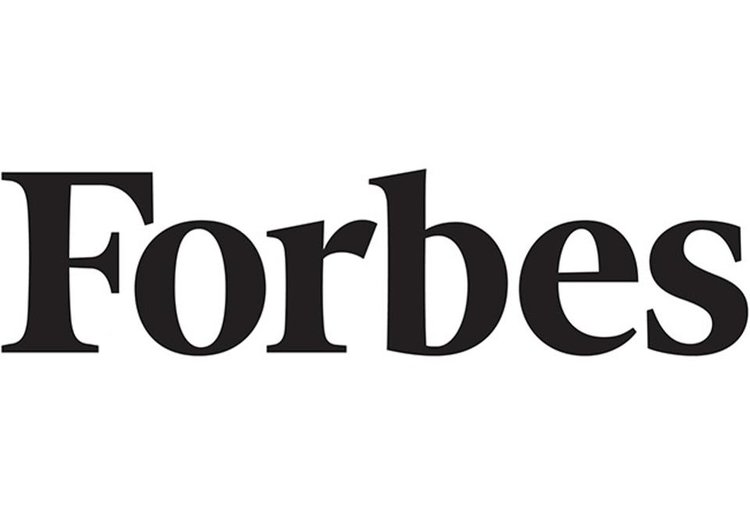February 22, 2019
The Final Frontier For SaaS Is CRM For Main Street (Forbes) »

POST WRITTEN BY
Cory Capoccia
Cory Capoccia is President at Womply, a SaaS company helping more than 150,000 small businesses attract, retain and engage more customers.

GETTY
Back in 2011, prominent Silicon Valley investor Marc Andreessen made one of the most astute observations of the internet age: “Software is eating the world.”
Nearly a decade later, his prognostication has come true in a big way. Led by software-as-a-service (Saas) pioneer Salesforce, which burst onto the scene in the late 90s, the global SaaS market is on pace to reach nearly $186 billion by 2024, according to ReportBuyer. Among all SaaS segments, customer relationship management (CRM) reigns supreme as the world’s largest and fastest-growing, according to Gartner.
It’s no wonder, as CRM has become the foundation of the business-to-business (B2B) technology stack for many companies. But in spite of that traction, a major sector of the economy has been left behind: the small, brick-and-mortar businesses lining American Main Streets. With saturation across most of the market, it’s safe to say that CRM for small businesses is the final frontier for SaaS.
Unintended Consequences
As markets mature, deep grooves appear in certain areas, while others remain relatively untouched. Such is the case with the global SaaS market, where the massive CRM for small-business segment is the last trail to be blazed. The reason, of course, is that market incentives have traditionally pushed value toward Wall Street at the expense of Main Street.
For years, countless SaaS startups started out building and selling software to small- to midsize businesses (SMBs). This helped young software companies generate revenue and establish an initial foothold in the market while their products were feature-light. But make no mistake, selling to SMBs was just a means to an end — ultimately, market dynamics led them upmarket to serve the Fortune 1000.
Repeated thousands of times, this playbook gave rise to a mature SaaS ecosystem for large and mid-market businesses, helping them discover unprecedented efficiencies and, in many cases, make more money than ever before. It also directed billions of venture capital and private equity dollars to SaaS startups and made millionaires out of shareholders at these companies. These are great outcomes for everyone except the small businesses to whom their early success was attributed.
Now, I don’t think the SaaS apparatus had malicious intent in leaving small businesses out of the party, but the market’s incentives certainly led to some unintended consequences.
Today, the 30 million small businesses that likely make up almost half of U.S. GDP and employ nearly half of the private workforce face a cruel irony: The SaaS ecosystem they helped create now stacks the deck against them. This problem is becoming even more acute as consumers increasingly demand digital relationships with every company they patronize, including their local bakery, car wash and dental office. The stark reality is that for those same bakers, car cleaners and dentists, these digital relationships are often impossible to manage at scale without CRM software.
Main Street Goes Digital
Another irony is that access to software could level the playing field for small businesses, but they’re not likely to build it for themselves. The good news is that as enterprise and mid-market SaaS solutions have reached saturation points, we’ve seen more software startups turn their attention to serving small businesses as an endgame rather than a means to an end.
We see clear evidence of this trend in SaaS adoption rates. In 2017, Techaisle predicted that 96% of small businesses would be using SaaS applications by the beginning of 2018, compared to 27% in 2011. Survey data from Techaisle also revealed that small businesses planned to increase their SaaS usage by 140%.
Clearly, there’s pent-up demand for software on Main Street. Now, we’re seeing a new generation of technology startups charging down the last unbeaten path in B2B SaaS. This market will face the same evolutionary curve as others before it, but it’s safe to say the industry has finally recognized an unmet need and sees tremendous opportunity in serving a woefully underserved customer.
Solving The Zero Data Problem
Salesforce was the catalyst for the enterprise SaaS movement because CRM is the foundation of the B2B technology stack. Without it, it’s often impossible to run effective marketing, sales or customer engagement programs. The trouble is that small businesses often face unique problems when it comes to using CRM software.
Even if you gave every small business a free Salesforce license, it’s likely that most of them wouldn’t be able to use it because of the zero data problem — most of them simply don’t have the information necessary to populate it. CRM systems are hollow shells that require extensive input of robust, accurate and well-structured data to be useful. Think of your local cafe, auto shop or hairstylist — do they have the necessary information (not to mention the capacity) to do this?
Most small offline businesses don’t collect data about their customers. Many of these businesses are time-starved and lack resources, and the nature of their customer journey makes it hard to even gather a simple email address without considerable friction. To illustrate, my company recently surveyed 125 U.S. small-business owners and found that two in five didn’t have contact information for more than half of their customers.
For small business CRM software to succeed, the enterprise SaaS model can’t be forced to fit small businesses. I believe they need solutions built for their unique needs, which can overcome the Herculean zero data hurdle. (Full disclosure: My company provides such a solution.) Of course, this requires a philosophical shift for product and software teams, which have to find ways to bring data into the system before the business owner or operator even logs in versus placing the burden of work on the small business operator.
The good news is that I’ve never seen more energy around creating software solutions for American mom and pop shops. Silicon Valley has been criticized for spending mountains of money and effort creating apps for “stuff your mom won’t do for you anymore.” Against that backdrop, it’s refreshing to see gathering momentum around a movement that could reenergize a huge part of the American economic engine and preserve a precious part of our social fabric.
Let the era of SaaS built specifically for small business begin.